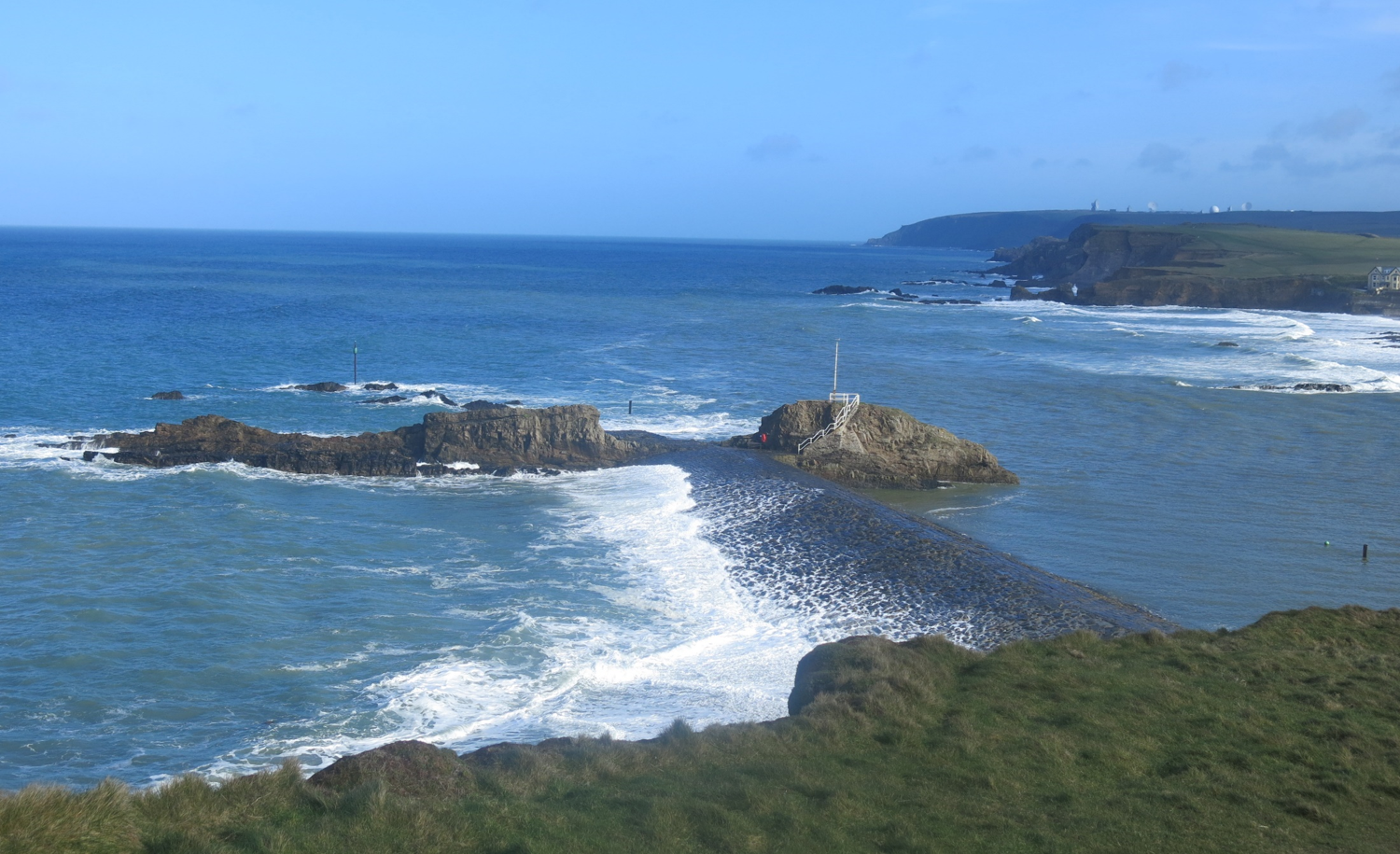Image credit: North Cornwall (UK) coastline, P. G. Wells photo.
The 26th UN Climate Change Conference of the Parties (COP26) will meet in Glasgow, Scotland, from 31 October to 12 November 2021 to move the climate change agenda forward from where it left off in Paris in 2015. COP 26 follows a large number of high level and urgent meetings throughout 2020 and 2021 (What is a COP, 2021).
This meeting is critical for reasons well-articulated in the recent editorial in Science by Jane Lubchenco and John Kerry (Lubchenco & Kerry, 2021). The Sixth Assessment Report by the Intergovernmental Panel on Climate Change has just been completed and released. The report informs government policy makers globally about the crisis posed by climate change. The situation has clearly become dire, with many environmental changes and events occurring around the world, all with economic, humanitarian, and ecological consequences. To quote: “Two stark findings command attention. Some changes underway in the ocean and the Arctic are potentially irreversible on human time scales, And the pathway for limiting warming to 1.5°C is narrowing rapidly” (Lubchenco & Kerry, 2021, p. 1285). Clearly, nations must reduce their carbon emissions quickly – the next decade could be crucial for keeping within the 1.5°C target. Hence, the COP 26 meeting “must be a turning point.” The leaders of every country must act now and act boldly.
This meeting will be attended by 2000+ politicians, ministers, policy advisors, scientists, and representatives from industry to non-governmental organizations from across the globe, representing a wide spectrum of society. Time is of the essence for the top policy makers and their governments to act with seriousness and commitment to both mitigate and adapt to the changes taking place around the globe.
As pointed out by this week’s panel discussion on the impacts of climate change on ocean biodiversity, sponsored by the Royal Society of Canada, the oceans play a major role in this issue and unfortunately may not be discussed at the COP meeting in the detail that is deserved (Royal Society of Canada, 2021). Climate change is having a devastating impact on many marine organisms and ecosystems, especially coral reefs. The changes in the oceans, such as increased temperature and acidity, are unequivocal and must be stopped and reversed in order to prevent both humanitarian and ecological disasters in the coming decades. The consensus from the ocean science community is that time is running out. Too many countries talk the talk but do not initiate sufficient meaningful actions; sadly, Canada is among these countries. For the protection of ocean biodiversity, there needs to be a stronger linkage between the science and management of biodiversity, and the policies and management of climate change mitigation and adaptation.
Clearly, climate change is a pivotal issue. It deserves the attention of academic research teams, such as those of the EIUI program, in examining the science-policy interface in all of its complexities. To ensure that there is evidence-based and evidence-informed policy making on climate, it is crucial to have an active climate and ocean literate population at all levels of society, especially in an ocean province such as Nova Scotia (Wells & Richardson, 2018; Wells, et al., 2021).
If the battle on the climate issue is lost in the coming decades, humanity, both rich and poor, will simply have to adapt to living on a much warmer planet, with all of its negative ramifications. Tragically, the world’s ecosystems and organisms, i.e., its biodiversity, will change beyond recognition. The planet will survive but will be a much different place.
References
Lubchenco, J., & Kerry J. F. (2021, September 17). Editorial. Climate science speaks: “Act now.” Science, 373(6561), 1285. https://www.science.org/doi/10.1126/science.abm3757
Royal Society of Canada. (2021, October 27). Impacts of climate change on biodiversity in the oceans. https://rsc-src.ca/en/events/impacts-climate-change-biodiversity-in-oceans
Wells, P. G., & Richardson, D. H. (2018). Editorial. Climate change in the Maritimes – concerns and challenges. Proceedings of the Nova Scotian Institute of Science, 49(2), 201-203. https://ojs.library.dal.ca/nsis/article/view/nsis49-2wells%2Crichardson/6995
Wells, P. G., Butler, M. J. A., & Eger. S. (2021). Editorial. Ocean literacy – communicating science in an ocean province. Proceedings of the Nova Scotian Institute of Science, 51(2), 253-256. https://eiui.ca/editorial-ocean-literacy-communicating-science-in-an-ocean-province/
What is a COP? (2021). https://ukcop26.org/uk-presidency/what-is-a-cop/
Author: Peter G. Wells
